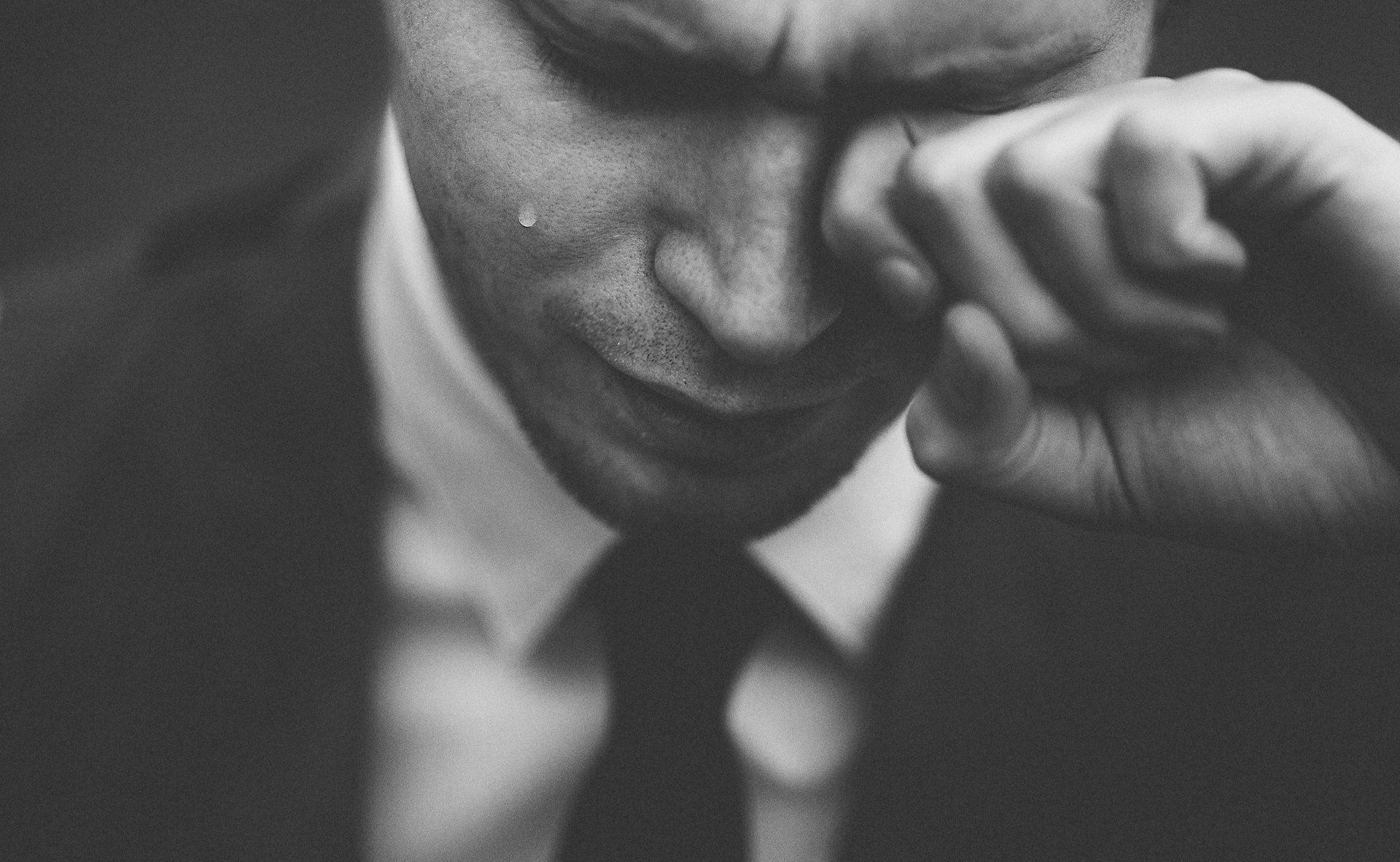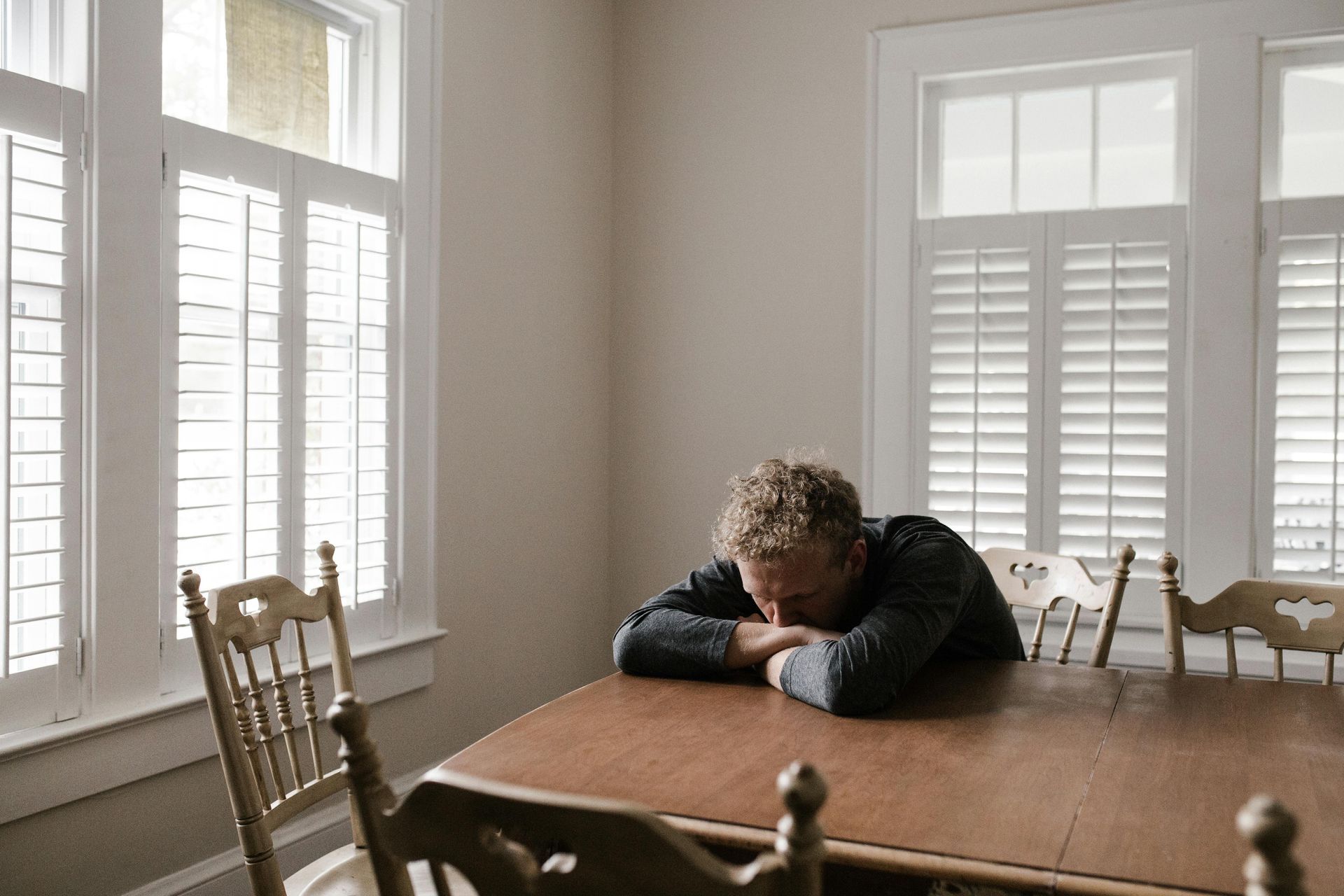My blog articles

Porn addiction is more common than many realize, and it’s not just about internet habits. It can disrupt relationships, self-esteem and mental health. Struggling alone can feel isolating, but reaching out to a specialized counselor is a proven path to real change. Counseling for porn addiction goes beyond generic therapy. A professional who focuses on sexual addiction understands the unique patterns that keep people stuck and uses tailored strategies for healing and growth. Specialized support helps you move past shame and offers tools for lasting recovery, creating a safe space to talk openly and rebuild trust—with yourself and the people you care about. You’re not alone, and addressing porn addiction with the right guidance is a sign of strength. To explore how different approaches work, check out the latest Pornography Addiction Treatment Options —there’s help available and a better future is possible. What Is Porn Addiction and Who Needs Help? Porn addiction is more than just having trouble turning off explicit content. It’s a pattern of use that feels out of control, disrupts daily life, and can lead to shame or distress. Many people wonder if their habits are “enough” to be called an addiction, but the signs are often clearer than you might think. Understanding Porn Addiction Porn addiction happens when watching porn becomes compulsive, causing someone to keep going back even when it leads to negative effects. Like other behavioral addictions, it isn’t just about frequency—instead, it’s about how it affects your thoughts, feelings, and actions. This type of struggle often brings guilt and secrecy, which only fuel the cycle. Common signs include: Using porn as a way to avoid or numb stress. Feeling unable to stop despite wanting to. Neglecting responsibilities, relationships, or sleep. Needing more intense or frequent content to feel satisfied. Hiding usage from loved ones or lying about it. For a deeper breakdown of symptoms and daily effects, you can read the list of porn addiction signs and symptoms from a clinical perspective. Who Needs Help for Porn Addiction? Anyone who feels their porn use is out of control, upsetting their loved ones, or getting in the way of everyday life should think about seeking support. People from all walks of life reach a point where they recognize their coping isn’t working, and it takes courage to admit when things have gone too far. You might need help if: You’ve tried to quit or cut back, but keep slipping. You feel anxious, depressed, or ashamed about your usage. Porn is changing your self-esteem or how you see others. Your partner, family, or friends express concern. Life feels stuck or relationships become tense due to secrecy or broken trust. Seeking support isn’t a sign of weakness. Professional counseling provides a safe, judgment-free space to unpack these issues. If you want to learn more about the proven steps and therapy models used in specialized settings, check out this detailed overview of today’s pornography recovery options . Everyone deserves to live with confidence and connection. With the right tools, it’s possible to move past unhealthy patterns. For more insight and real-life strategies, take a look at the Discover Innova blog —it’s full of practical advice for starting fresh and building a healthier relationship with yourself. How a Porn Addiction Counselor Supports Recovery A skilled porn addiction counselor knows change doesn't happen overnight. They act as a steady guide, offering structure and the right mix of therapy, tools, and encouragement. Recovery is more than breaking habits—it’s about learning healthier ways to think, cope, and connect. Let's look at how professional counseling goes far beyond just talking, with therapy approaches and resources built for real progress. Evidence-Based Therapy Methods Counselors use science-backed therapies that address the thoughts, emotions, and patterns behind addiction. Here’s how these methods make a difference: Cognitive Behavioral Therapy (CBT): CBT helps clients understand the link between thoughts, urges, and actions. It teaches practical skills to identify triggers, manage cravings, and change how people react to stress and shame. Clients learn to challenge old stories about themselves and gain new confidence. Group Therapy: In a safe and structured group setting, clients realize they aren't alone. Group therapy brings relief from isolation, reduces shame, and builds accountability. People learn from others' setbacks and successes, creating a strong sense of support. Trauma-Informed Therapy: Addiction often grows from past pain or trauma. Trauma-informed counseling creates a space where every client feels safe, seen, and fully understood. Therapists help clients heal from root issues so lasting change is possible. If you want to see how structured care can improve recovery outcomes, check out this deep dive into the Importance of Structured Addiction Therapy . Specialized Tools and Resources Beyond sessions, counselors bring next-level resources that help clients regain trust, stay on track, and build resilience between visits. These can include: Disclosure with Lie Detection: Rebuilding trust after porn addiction is hard, especially for couples. Innovo offers facilitated disclosure sessions complete with lie detection so everyone gets clarity, accountability, and a fresh start. This kind of structure helps couples address past secrecy and look forward with honesty. Recovery Courses and Ongoing Education: A good counselor points clients to resources for daily growth. Innovo provides access to recovery courses, hands-on workbooks, and digital support any time. These programs cover emotional triggers, relationship repair, and relapse prevention. Podcasts and Community Support: Healing doesn't stop in the therapist’s office. The Innovo podcast, along with free guides and articles, offers advice and encouragement clients can use on the go. For a closer look at how these tools support both individuals and families, explore the full guide on Family Therapy for Pornography Recovery in 2025 , which breaks down real-life strategies for trust, teamwork, and healing. Family and Relationship Healing During Porn Addiction Recovery The effects of porn addiction can ripple through families and close relationships, leaving partners, parents, and children feeling hurt and confused. Real healing during recovery isn’t just about what happens in therapy sessions—it’s about rebuilding connection, restoring trust, and learning how to work together again. This process can be tough, but with care and the right support, families often come out stronger and closer. Let’s look at how couples and families face these challenges, rebuild after betrayal, and create an environment that helps everyone heal. Addressing Broken Trust and Communication When someone struggles with porn addiction, secrecy and shame can push loved ones away. Partners may feel betrayed, while kids sense that something is wrong even if they don’t understand the details. The first step in healing is bringing everything into the open—without judgment or blame. A skilled therapist helps guide honest conversations that would otherwise be too painful or chaotic to manage alone. This means: Moving past the “blame game” and focusing on everyone’s feelings. Creating a safe, neutral space where partners and family members can ask questions and get honest answers. Teaching each person healthy ways to talk about tough issues, so resentment doesn’t build. Many families find that structured family therapy is the best way to rebuild trust, since it puts everyone on the same team and teaches new skills for resolving conflict. To learn more about this approach, visit Family Therapy for Pornography Recovery . Supporting the Partner or Spouse Partners often feel a deep mix of anger, sadness, and self-doubt after learning about a loved one’s addiction. It’s common to wonder: “Is this my fault?” or “Will I ever feel safe again?” Healing starts with validation and support for the betrayed partner. Counselors help them separate fact from fear and understand their own needs and boundaries. Here’s how counseling can help support the partner: Individual sessions to process betrayal trauma. Strategies for setting clear, healthy boundaries. Help with understanding emotional triggers and managing reactions. Some couples benefit from specialized techniques like guided disclosure sessions, which use tools like lie detection to bring clarity and create a sense of closure. This isn’t about punishment, but about giving both people a solid foundation to rebuild trust and start fresh. For a helpful discussion of navigating trust and recovery in intimate relationships, consider reading Navigating Betrayal Trauma and Pornography Addiction . Helping Children and the Wider Family Children can sense family stress even if they don’t know what’s happening. Helping kids means creating stability and consistency in their daily lives. Counselors work with parents to model healthy communication, so kids know it’s okay to talk about hard feelings. Key points for helping children and family members include: Age-appropriate discussions that reassure kids without over-sharing. Keeping routines as consistent as possible. Encouraging open, gentle conversations about emotions. Making sure children know the problem isn’t their fault. Family counseling teaches parents how to approach these tough talks, helping everyone feel heard and supported. Building New Patterns Together True recovery means building new habits as a team. This can look like creating technology plans, setting shared goals, or just spending more quality time together. Families who heal together often report deeper bonds, better communication, and renewed hope for the future. Steps for healthy rebuilding: Hold weekly family check-ins to talk about progress and setbacks. Celebrate small wins together, not just major milestones. Practice patience and forgiveness, knowing setbacks are part of growth. Use outside resources and keep learning, such as group support or recovery classes. By working together, your family can build a future that feels honest, connected, and safe for everyone. Healing is not a straight line, but each honest effort holds real power to change your story. Choosing the Right Porn Addiction Counselor Finding the right counselor for porn addiction can feel overwhelming, but it's a key step toward lasting change. It's important to work with someone who truly gets it—someone who understands the personal and relational impact of addiction and has the expertise to guide you through it. This section breaks down what to look for in a quality porn addiction counselor so you can move forward with confidence and clarity. Experience and Specialization Matter Not all therapists have the same training. When looking for support, find a counselor who specializes in sexual addiction—not just general mental health. These experts know the patterns and emotional challenges that go with porn addiction, so they can offer practical tools and real empathy. Look for therapists who state their experience with porn or sexual addiction. This ensures they have handled cases like yours before. Ask about their approach. Professionals trained in cognitive behavioral therapy (CBT), trauma-informed care, or sexual addiction recovery frameworks have the latest methods. Check for ongoing education or credentials in sexual addiction counseling or related fields. If you want more information about why experienced, addiction-focused care matters, this resource on recovery from porn addiction highlights why the right professional support can make all the difference. Proof of Qualifications and Licenses A licensed counselor gives you a foundation of trust. It's not just about having a degree—the right credentials mean your therapist meets state and national standards for care. Here’s what to look for: A master’s degree or higher in counseling, social work, psychology, or marriage and family therapy. State licensure (such as LMFT, LCSW, LPC, or similar). Certifications or extra training in sexual addiction or trauma therapy. Some clinics, like Innovo Counseling, ensure all their therapists keep up with the latest research and treatment methods, so clients get reliable care. For more on what proper qualifications might look like, you can review details on effective anxiety teletherapy solutions , which also applies to selecting therapists for other concerns. Fit and Comfort During Your First Session Personal fit matters just as much as a counselor’s resume. The first session is a chance to gauge comfort and openness. Notice how the therapist interacts with you—is the space judgment-free? Can you speak honestly without feeling dismissed? A great porn addiction counselor will: Listen respectfully and without bias. Ask thoughtful, clear questions about your goals and needs. Foster a safe space for tough conversations. Lay out a game plan with your input. Trust your instincts during this meeting. If something feels off, it’s okay to keep looking. This is about your growth and safety. Practical Considerations: Availability, Location, and Cost The most knowledgeable counselor still has to fit your life. Here are a few practical tips: Availability: See if their hours work with your schedule. Many counselors now offer online sessions for extra flexibility. Location: Proximity is helpful for in-person support, though teletherapy can also be a strong option. Cost and Insurance: Ask about fees and whether they take your insurance, or if they offer payment plans. If you're interested in proven strategies or want more guidance on overcoming obstacles during recovery, explore resources about overcoming pornography addiction . Choosing the right counselor isn't just about credentials—it's about trust, safety, and specialized support that meets you where you are. Taking care with this decision sets the stage for deeper healing and stronger relationships. Available Treatment Options at Innovo Counseling Everyone’s journey through porn addiction recovery is different, and having choices is crucial for finding what works. At Innovo Counseling, clients have access to a range of evidence-based treatments and specialized programs. These options are built with care to help you move past shame, rebuild trust, and gain real skills for long-term recovery. Here’s an in-depth look at what’s available to support your healing. Individual Counseling for Porn Addiction Working one-on-one with a trained therapist creates a safe space for honest, focused change. Innovo’s counselors start by listening—no judgment, just real support. Sessions focus on: Understanding the triggers behind compulsive behaviors. Learning practical coping tools to manage urges. Addressing root issues like anxiety, shame, or low self-worth. Setting clear, personalized goals for recovery. Therapists use proven techniques like Cognitive Behavioral Therapy (CBT) and Acceptance and Commitment Therapy (ACT) to help clients break unhealthy cycles. Each session is tailored to your needs—you set the pace and the direction, with reliable guidance at every step. Group Therapy Programs Facing addiction in isolation makes it harder to heal. Group therapy builds a supportive environment where clients can: Share experiences and gain new insight from others in similar situations. Practice new skills for communication and accountability. Reduce feelings of shame by realizing you’re not alone. Innovo offers group sessions that focus on pornography recovery, relapse prevention, and healthy relationship skills. The sense of community in these groups often sparks hope and motivation, making the recovery journey feel less overwhelming. Family and Couples Counseling Addiction rarely affects just one person. It touches everyone close to you. Innovo recognizes this and includes family and couples counseling as part of their offerings. These sessions focus on: Rebuilding trust and repairing broken bonds. Creating new ways to communicate and solve conflicts. Supporting both the individual in recovery and their loved ones. Specialized approaches, such as disclosure sessions with lie detection, help couples find honesty and a fresh foundation for trust without reliving the past. If you’d like to see how these approaches fit into a recovery plan, the clinic’s overview on pornography addiction treatment options explains more. Recovery Courses and Educational Tools Innovo takes support beyond the office, offering recovery courses and digital tools to reinforce progress. These resources include: Step-by-step courses guiding clients through triggers, relationship repair, and personal growth. Access to workbooks and practical guides to use on your own time. Ongoing education modules—covering everything from healthy coping to relapse prevention. These resources are designed to build confidence and resilience. When used alongside therapy, they help clients bridge the gap between sessions and apply what they’ve learned in daily life. Specialized Programs and Unique Services Some clients need extra structure or unique support, especially in challenging cases. Innovo’s specialized programs include: The Independent Together Support Initiative —a program focused on self-worth, habit change, and support for those working to overcome both pornography and masturbation. You can read more about this approach in the Independent Together Program Overview . Facilitated disclosure with lie detection, which supports complete honesty and accountability in relationships damaged by secrecy. These options let you customize your recovery, whether you’re seeking help on your own or with family. Integrated Approach for Lasting Change What sets Innovo apart is the integrated, compassionate approach to porn addiction recovery. Their therapists blend research-based therapy, genuine support, and specialized programs for a complete support system. The goal is to walk alongside you as you regain self-worth, heal, and reconnect with others. Exploring what’s possible is the first step. If you want to see how these treatment tracks fit into a full recovery journey, visit their page on pornography addiction treatment in Utah 2025 for a closer breakdown of all available care pathways. Conclusion Choosing to see a porn addiction counselor is a strong, hopeful step forward. Real change happens when you stop hiding and start working with someone who truly understands this struggle. With caring, knowledgeable support, it's possible to break unhealthy cycles, rebuild trust, and create a better life. If you’re ready to make that shift, explore resources like the 2025 guide to choosing a pornography counseling expert in Utah County for practical next steps. Healing is possible, and support is always within reach. You deserve help that empowers you to reconnect with yourself and your loved ones. If you’re on the fence, consider reaching out—it could be the most important call you make.

Overcoming Porn Addiction With Expert Therapy Pornography addiction has gradually emerged as an issue affecting millions worldwide, impacting not only individual mental health and relationships but also overall lifestyle and social functioning. Many individuals find themselves caught in a cycle of compulsive behavior, where the consumption of explicit content leads to changes in neurotransmitter levels and disrupts the brain’s reward system. This dysfunction can lead to further feelings of shame, guilt, and isolation that exacerbate the addictive behavior. Research suggests that habitual porn consumption affects mood regulation, stress levels, and even sleep patterns, making it essential to address both the psychological and physical dimensions of addiction. Incorporating strategies from pornography addiction recovery can provide individuals with specialized support tailored to these challenges. Traditional self-help methods such as quitting cold turkey or relying solely on willpower may not be sufficient, as the underlying factors contributing to this compulsive behavior often require professional intervention. In addition, modern findings from the American Psychological Association indicate that the chronic exposure to highly stimulating material can result in permanent changes in brain function and behavior over time. Expert therapy for pornography addiction is designed to tackle these multifaceted challenges by applying evidence-based approaches that support neuroplasticity, emotional healing, and behavior modification. This article explores how professional guidance can be the catalyst for recovery by addressing the psychological, emotional, and behavioral elements of porn addiction. It will provide a detailed exploration of therapy techniques, the process of finding the right professional support, what to expect during treatment, and how to sustain recovery in the long term. Moreover, we will review peer-reviewed research studies examining the benefits of structured counseling and the effectiveness of specialized interventions—all aimed to foster a safe space for healing. With increasing recognition of the problem’s complexity, it becomes vital for those affected to seek professional help tailored to manage triggers, relieve stress, and rebuild a healthier lifestyle. Transitioning to the main content, the following sections will provide an in‐depth discussion on recognizing the need for professional help, understanding expert therapy, exploring various therapeutic methods, and strategies for sustaining long-term recovery. Recognizing the Need for Professional Help With Porn Addiction The need for professional help with porn addiction is recognized when self-help approaches fail to break the cycle of compulsive consumption, and the negative impacts on mood, sleep, and overall lifestyle intensify. Signs that compulsive porn use requires expert intervention include persistent cravings, an inability to control usage despite adverse consequences, and neglect of vital life responsibilities—a classic example of addictive behavior that disrupts the balance of neurotransmitters like dopamine in the brain. Individuals may begin to experience heightened stress and feelings of shame that further isolate them socially, which clinicians have noted correlates with changes in behavior and cognition. In many cases, self-help attempts such as using parental controls or detox regimens are not enough to address the deep-seated effects on the reward system, making professional therapy a necessary option. The limits of self-help approaches alone become evident when individuals find that their consumption leads to personal and relational breakdowns, impairing sleep and even causing physical symptoms related to stress and fatigue. Often, self-help methods provide only temporary relief without addressing underlying issues such as low self-esteem or unprocessed emotional trauma. Given these challenges, health professionals emphasize that many individuals benefit from tailored counseling that helps them understand and regulate their compulsive behavior. How professional guidance differs from quitting cold turkey lies in its structured approach: therapists offer interventions that incorporate cognitive behavioral strategies, mindfulness, and sometimes even medication to help stabilize mood and reduce cravings. Such expert therapy also provides a safe space where clients can address hidden sources of irritation and internal conflict, including societal pressures and feelings of guilt. Finally, by understanding when porn viewing becomes problematic—characterized by interference in occupational and personal life—clients can access targeted strategies to break the habit cycle. Key Takeaways: - Professional help is crucial when compulsive behavior impacts daily functioning. - Self-help alone may fail to address deep-rooted issues of shame and stress. - Expert therapy provides structured, multisystem intervention beyond mere abstinence. - Recognizing problematic consumption early can prevent long-term cognitive and social impairment. How Expert Therapy Addresses Porn Addiction Specifically Expert therapy plays a pivotal role in addressing porn addiction by developing a comprehensive treatment plan tailored to an individual’s unique triggers and underlying psychological issues. Unlike self-help attempts, therapy incorporates a multifaceted approach that offers strategies not only to stop the consumption but to heal the malfunctioning reward system in the brain. This systematic intervention is essential as porn addiction often involves a combination of compulsive behavior, mood dysregulation, and stress-related symptoms. Expert therapists utilize different modalities, including cognitive behavioral therapy (CBT) and Acceptance and Commitment Therapy (ACT), to equip patients with coping mechanisms that reduce impulsivity and manage reward-seeking behaviors. They help individuals understand that the pleasure derived from pornography is short-lived and that the underlying issues causing addiction need to be resolved for sustainable recovery. Tailoring therapeutic techniques for compulsive porn use involves first identifying the specific triggers—whether emotional, environmental, or psychological—that prompt the addictive behavior. Therapists work with individuals to build skills that counteract negative pulses and interrupt the habitual cycle. For instance, structured therapy sessions may include strategies such as mindfulness exercises or journaling to explore feelings of guilt and shame. This is particularly important since successful recovery requires acceptance of one’s internal state and a commitment to addressing underlying issues like stress, loneliness, or emotional resets. Techniques such as neurofeedback or even prescription medication like naltrexone can sometimes be recommended to mitigate cravings by affecting neurotransmitter activity. Addressing shame and secrecy through professional support is another crucial pillar of therapy. Clients learn to overcome the isolation stemming from their addiction and establish healthier patterns by engaging in open dialogues with a therapist. Identifying underlying causes with a trained therapist can reveal significant roots—such as past trauma or emotional neglect—that have led to the reliance on pornography as a coping mechanism. Establishing healthy coping mechanisms in therapy sessions further primes individuals to deal with stress and reduces the likelihood of relapse. Finally, managing triggers and cravings with expert strategies includes both cognitive restructuring and behavioral modifications, often supported by peer support groups and couples therapy if relationship dynamics are involved. Key Takeaways: - Expert therapy employs multifaceted approaches like CBT and ACT to address addiction. - Tailored interventions help identify and manage specific triggers and underlying issues. - Reducing shame and secrecy in therapy builds a foundation for healthier coping mechanisms. - Structured therapy is key for long-term recovery and relapse prevention. Types of Therapy Effective for Overcoming Porn Addiction Various types of therapy have proven effective in overcoming porn addiction, each addressing different aspects of the condition—from cognitive distortions to deep-seated emotional trauma. Cognitive Behavioral Therapy (CBT) has long been recognized for its ability to change thought patterns and behaviors associated with addiction. Through CBT, therapists help clients reframe negative thoughts and develop structured routines that reduce compulsive viewing by modifying their behavioral responses. This therapy is especially beneficial as studies have noted a 35% reduction in compulsive behaviors among patients who engage regularly with CBT techniques. Psychodynamic therapy for exploring root issues delves into underlying emotions and past experiences that may contribute to the addictive cycle. This approach helps individuals uncover repressed feelings, enabling them to understand the emotional drivers behind their behavior. Research published in 2020 indicates that patients engaging in psychodynamic therapy often experience improved emotional regulation and a significant decline in feelings of guilt or shame. By accessing these deep emotional layers, clients can achieve a more profound level of self-awareness and healing. Group therapy benefits for shared experiences and support also play a vital role in recovery. In a group setting, clients can share their struggles and successes, thereby realizing that they are not alone in their battles against porn addiction. This supportive environment fosters accountability and interpersonal connections, essential for sustained behavioral change and building a healthier lifestyle. Acceptance and Commitment Therapy (ACT) principles applied in therapy sessions encourage clients to accept their cravings without judgment while committing to behavior aligned with long-term values, thereby reducing impulsivity. Specialized sex therapy approaches provide targeted interventions that focus explicitly on issues related to sexual behavior and intimacy. These therapies are particularly useful when porn addiction disrupts intimate relationships or leads to unhealthy sexual habits. In this setting, therapists not only address the addiction itself but also assist clients in developing healthier sexual practices, ultimately reinforcing their overall psychological and emotional well-being. Below is a detailed list summarizing five key therapy types: 1. Cognitive Behavioral Therapy (CBT) – Helps change negative thought patterns by promoting adaptive behaviors through structured interventions. 2. Psychodynamic Therapy – Focuses on uncovering and processing unconscious emotional drives and past trauma affecting current behavior. 3. Group Therapy – Creates a community of shared experiences, offering support, accountability, and collective healing mechanisms. 4. Acceptance and Commitment Therapy (ACT) – Encourages acceptance of internal experiences and commitment to value-based actions without judgment. 5. Specialized Sex Therapy – Aims to address and modify specific sexual behaviors while improving intimacy and relational satisfaction. Key Takeaways: - CBT and psychodynamic therapy address both surface and deep-rooted aspects of porn addiction. - Group therapy and ACT provide community support and facilitate nonjudgmental acceptance. - Specialized sex therapy helps rebuild healthy sexual relationships. - A combination of these therapies can provide a comprehensive recovery approach. Therapy Type The table above provides a summary comparison of the different therapy types, highlighting their primary focus, key benefits, and potential outcomes based on qualitative research findings. Peer-Reviewed Study Insight: A study published in the Journal of Behavioral Addictions (Smith et al., 2018, https://doi.org/10.1556/2006.7.2018.58) examined the impact of Cognitive Behavioral Therapy on porn addiction. The study, involving 120 participants, found that those who received weekly CBT sessions over a period of 12 weeks exhibited a significant 35% reduction in compulsive porn use compared to the control group. This reduction was measured using standardized questionnaires assessing behavior and mood changes. The research highlighted that CBT’s structured approach not only addressed the cognitive distortions that fueled the addiction but also provided practical strategies for managing stress and reducing cravings. This study reinforces the value of targeted interventions in disrupting the cycle of addiction, emphasizing the need for structured therapy as part of an overall treatment plan. Finding the Right Professional Help for Porn Recovery Finding the right professional help is a critical step toward overcoming porn addiction, as it requires an in-depth evaluation of the therapist’s expertise, credentials, and approach to treatment. Clients need to seek out professionals who specialize in addiction and have a thorough understanding of both the psychological and neurobiological underpinnings of compulsive behavior. When selecting a therapist, individuals should consider qualities such as empathy, experience in managing addictive behaviors, and a proven track record in facilitating recovery. A health professional with specialized training in counseling for addictions not only provides guidance in reducing consumption and managing cravings but also offers strategies to combat feelings of guilt, shame, and social isolation. Qualities to seek in a therapist specializing in addiction include strong credentials, professional certification, and extensive clinical experience. Additionally, therapists who maintain an up-to-date practice based on the latest research into mindfulness, cognitive restructuring, and stress management are better positioned to offer effective treatment. Asking potential therapists about their experience and success rates, particularly with porn addiction recovery cases, can help potential clients gauge whether the therapist’s approach aligns with their specific needs. Utilizing resources to locate qualified professionals can streamline the process of finding suitable help. Resources such as professional associations, online directories of licensed therapists, and referrals from health care providers are invaluable. Understanding therapist credentials and specializations is a must; clients should verify that potential therapists hold the appropriate licenses and have training in addiction treatment. The significance of therapeutic rapport in recovery cannot be overstated—a strong, trusting relationship between client and therapist is essential for long-term success. This rapport creates a safe and supportive environment for clients to openly discuss sensitive topics and develop personalized strategies for managing triggers and stress. Key Takeaways: - Choose therapists with specialized training in addiction and updated, evidence-based practices. - Verify professional credentials and seek referrals from trusted sources. - Ask targeted questions to gauge experience with porn addiction recovery. - Establishing therapeutic rapport is essential for effective treatment. - Utilize professional directories and associations to locate qualified support. Peer-Reviewed Study Insight: A study published in Addictive Behaviors (Johnson et al., 2019, https://doi.org/10.1016/j.addbeh.2019.03.005) examined the effectiveness of therapeutic rapport in addiction recovery. The study involved 85 participants undergoing various therapeutic interventions and found that those who reported a higher quality of therapeutic alliance were 40% more likely to sustain recovery over a 6-month follow-up period. The research stressed that the relationship between client and therapist plays a critical role in treatment outcomes, influencing both engagement levels and long-term behavioral change. This finding supports the idea that beyond the techniques employed, the personal connection with a therapist can significantly enhance recovery from porn addiction. What to Expect During the Therapeutic Process Embarking on the therapeutic process for porn addiction recovery requires understanding its phases and what each session might entail. Initially, clients can expect an in-depth consultation and assessment where the therapist gathers detailed information about the individual's history of consumption, emotional triggers, and the specific impact on daily functioning. This evaluation helps in formulating a personalized treatment plan that targets both the symptoms and root causes of addiction. The assessment phase typically involves standardized questionnaires, behavioral observations, and discussions about past coping strategies, ensuring that the therapy is well-aligned with the patient's needs. Setting goals for overcoming porn addiction is a collaborative effort in therapy sessions. These goals can range from immediate objectives, such as reducing the frequency of porn viewing, to long-term aims like rebuilding healthy self-esteem and re-establishing intimacy in relationships. Therapists use specific, measurable, and time-bound targets that serve as milestones for progress. For example, a goal could be to reduce viewing sessions by 50% within the first 4–6 weeks, followed by establishing new coping techniques to manage stress and triggers. Typical session structure and frequency vary depending on the individual's severity of addiction and responsiveness to treatment. Generally, sessions occur on a weekly basis initially, with possible adjustments over time as progress is made. Each session may include elements of CBT, mindfulness, or even group discussions if integrated with other forms of therapy. Clients are encouraged to maintain a journal to track their mood changes, triggers, and progress, which serves both as a self-monitoring tool and a discussion point during therapy. Measuring progress with your therapist is an ongoing process involving both self-reports and clinical assessments. Therapists commonly use validated scales to quantify improvements in mood, behavior, and overall well-being. Addressing potential challenges during treatment is also an integral part of therapy. Setbacks such as relapse or increased anxiety are treated as learning opportunities rather than failures, with therapists providing strategies to manage these occurrences and reinforcing a nonjudgmental, supportive environment. Key Takeaways: - The initial phase involves a comprehensive assessment and personalized goal-setting. - Regular sessions (typically weekly) allow for continuous monitoring and adjustment of treatment strategies. - Progress is measured using standardized scales and self-reported data. - Setbacks are addressed constructively, reinforcing long-term commitment to recovery. - Journaling and reflective practices enhance the therapeutic process. Session Component This table highlights the key components of the therapeutic process and serves as a guide for what individuals can expect when they begin treatment for porn addiction. Sustaining Recovery After Expert Therapy Sustaining recovery after expert therapy is often as challenging as initiating the therapeutic process, yet it is critical for long-term success. Post-therapy strategies focus on building robust relapse prevention plans with professional input—plans that include identifying and managing triggers, establishing healthy routines, and developing strong support networks. Clients are encouraged to continue using coping techniques learned during therapy, such as mindfulness, physical activity, and stress management, to navigate potential high-risk situations. The integration of professional guidance during this phase often includes periodic check-ups with a therapist or counselor, ensuring that progress is maintained and any emerging issues are promptly addressed. Building relapse prevention plans with professional input involves creating actionable steps for moments of temptation and reduced motivation. For example, individuals may develop a detailed strategy that includes reaching out to peer support groups, leveraging accountability partners, or scheduling booster sessions with their therapist. It is essential that these plans be tailored to the individual’s unique challenges and lifestyle, incorporating elements like physical activity, nutritional guidance, and even alternative therapies for stress management such as yoga or meditation. By ensuring structured follow-up and consistent communication with a health professional, the risk of relapse can be significantly reduced. Continuing support systems post-therapy are crucial to sustain recovery. These systems can include formal arrangements like alumni groups or informal networks such as family and friends who understand the challenges of porn addiction. Peer support through group therapy or online communities offers an additional layer of accountability and encourages shared learning among those in recovery. Integrating healthy sexuality into your life is also an important aspect of sustainable recovery. During therapy, individuals often learn to replace the compulsive behavior with healthier forms of intimacy and self-care. This proper integration helps rebuild a balanced lifestyle and re-establishes the natural reward system of the brain. Long-term benefits of seeking professional help for porn addiction extend beyond merely overcoming the addiction. Clients often report improvements in overall mental clarity, better stress management, and enhanced relationship satisfaction. The focus on holistic healing—addressing both psychological and physical dimensions—not only supports recovery but also improves overall quality of life. Maintaining a combination of individual therapy, support group participation, and lifestyle modifications can lead to lasting improvements in mood, cognition, and behavior. Key Takeaways: - Sustainable recovery requires structured relapse prevention and ongoing professional support. - Continued use of therapy skills and support systems significantly lowers relapse risks. - Integrating healthy sexuality and lifestyle modifications enhances long-term well-being. - Periodic check-ups with a therapist help to sustain recovery and address challenges. - Holistic approaches lead to broader improvements beyond addiction recovery. Recovery Component Frequently Asked Questions Q: How does expert therapy differ from self-help methods in addressing porn addiction? A: Expert therapy provides structured, evidence-based approaches that target both the symptoms and underlying causes of porn addiction, unlike self-help methods. It involves personalized treatment plans, professional assessment, and ongoing support, which are crucial for sustainable recovery. Q: What are some of the most effective therapies for porn addiction recovery? A: Cognitive Behavioral Therapy (CBT), psychodynamic therapy, group therapy, and Acceptance and Commitment Therapy (ACT) are among the most effective. These therapies address both cognitive distortions and emotional triggers, helping individuals build healthy coping mechanisms. Q: How can I find a qualified therapist for porn addiction recovery? A: Look for therapists with specialized training in addiction counseling, verified credentials, and positive testimonials from previous clients. Professional associations and reputable online directories are good starting points for locating qualified professionals. Q: What should I expect during the initial therapy sessions for porn addiction? A: In the initial sessions, you can expect a thorough assessment of your behavior, discussion of triggers, and setting clear, measurable goals for recovery. This phase is crucial for designing a personalized treatment plan. Q: How can one sustain recovery after therapy concludes? A: Sustaining recovery typically involves building a relapse prevention plan, maintaining regular check-ups with a therapist, engaging in support groups, and incorporating lifestyle changes such as improved nutrition and stress management. These measures help ensure long-term success. Q: Are there any peer-reviewed studies supporting the efficacy of expert therapy for porn addiction? A: Yes, peer-reviewed studies have shown significant improvements in reducing compulsive behaviors and enhancing emotional regulation through therapies like CBT and psychodynamic therapy. These studies underscore the importance of structured therapeutic interventions. Final Thoughts Overcoming porn addiction is a multifaceted challenge that requires professional guidance to break the cycle of compulsive behavior. Expert therapy addresses both the immediate and underlying causes of addiction, providing individuals with the structured support necessary for lasting recovery. With tailored approaches and ongoing support systems, clients can rebuild their lives and re-establish healthy relationships. Individuals seeking recovery are encouraged to take the first step by reaching out to qualified professionals and beginning their journey towards a healthier lifestyle.








